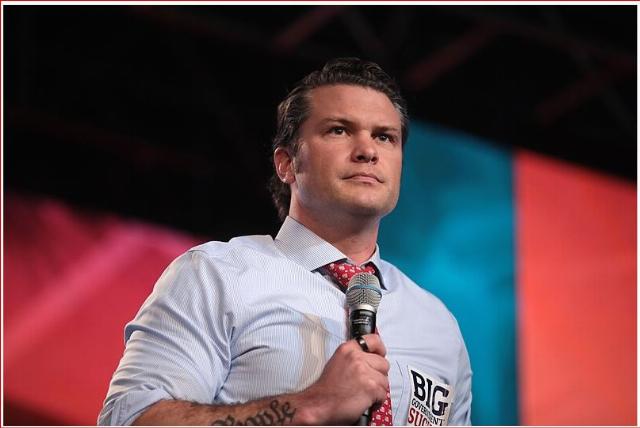by Charlton Allen, American Thinker:
Pete Hegseth, President Trump’s nominee for Secretary of Defense, is facing a relentless smear campaign that ranges from the petty to the absurd. Chief among these efforts are allegations from a disgruntled former employee of Concerned Veterans for America (CVA), where Hegseth served as CEO—claims that lack credibility and have resurfaced years after her brief tenure.
Meanwhile, critics have seized on other manufactured controversies, including Hegseth’s Christian tattoo, which has been assailed as extremist. This attack on his faith—and on traditional Christian imagery—reveals a deep hypocrisy, as such scrutiny would never be applied to other religious traditions. But these efforts to discredit Hegseth obscure the larger issue: his qualifications and commitment to reform, which make him the right choice to lead the Pentagon.
TRUTH LIVES on at https://sgtreport.tv/
Civilian Oversight: A Foundational Principle
The criticism of Hegseth often boils down to the claim that he lacks sufficient military credentials, with detractors pointing to Lloyd Austin as the ideal model of leadership. But this argument undermines a foundational principle of American governance: civilian control of the military.
Since the nation’s founding, civilian leadership of the armed forces has been a safeguard against the concentration of military and political power. While the position of Secretary of Defense has existed only since 1947, its roots lie in the role of Secretary of War, which dates to the earliest days of the republic. To reinforce this principle, U.S. law prohibits individuals who have recently served as active-duty officers from holding the position, with exceptions granted only three times—for George C. Marshall, James Mattis, and Lloyd Austin.
Hegseth’s critics, however, imply that only a retired general can effectively lead the Pentagon. This view is not only ahistorical but also misguided. Some of America’s most effective defense secretaries were civilians, including James Forrestal, the nation’s first Secretary of Defense. A former Wall Street banker, Forrestal was instrumental in modernizing the military during the postwar transition. Even figures like Robert McNamara, despite his polarizing legacy, showed the value of managerial ability in defense leadership.
The idea that Hegseth is unqualified because he did not reach the rank of general officer ignores his decorated service as an Army officer in Iraq and Afghanistan, as well as his leadership at CVA. His record speaks to his ability to manage large, complex organizations and advocate for reform—qualities sorely needed in the Pentagon.
The Double Standard of Lloyd Austin
Critics often cite Lloyd Austin as a contrast to Hegseth, yet Austin’s tenure has been marred by significant failures. Under his leadership, the Pentagon oversaw a disastrous withdrawal from Afghanistan, ongoing recruitment shortfalls, and accountability lapses. Most glaringly, Austin disappeared for a medical procedure without informing the Commander-in-Chief—a breach of the chain of command so significant that is analogous to being AWOL.
Read More @ AmericanThinker.com




 WOW! Dr. Oz, the new administrator of Medicare, says they’ve found BILLIONS in fraud already, and set up a war room to uncover...
WOW! Dr. Oz, the new administrator of Medicare, says they’ve found BILLIONS in fraud already, and set up a war room to uncover...